Search Results
Showing results 201 to 220 of 318
Soil Secrets
Source Institutions
In this activity (located at the bottom of the page), learners investigate soil and explore the creatures that live in it.
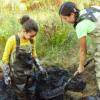
Bury Me Not!
Source Institutions
This activity (page 2 of the PDF under SciGirls Activity: Bogs) is a full inquiry investigation into decomposition.
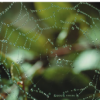
Stick to It: Adhesion II
Source Institutions
Water sticks to all kinds of things in nature — flowers, leaves, spider webs - and doesn't stick to others, such as a duck's back.
Butterflies in Space
Source Institutions
The Butterflies in Space Teacher's Guide uses "life in space" to encourage learners to conduct their own open-ended scientific investigations.
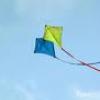
Blowin' in the Wind
Source Institutions
In this weather activity, learners build their own wind detector and test for the presence of convection currents in their indoor location.

How Might Elevated CO2 Affect Plants
Source Institutions
In this activity, learners conduct an experiment to investigate the effect of elevated levels on CO2 on plant growth.

Balloon Impacts
Source Institutions
In this activity, learners measure the diameter of their water balloons, model an impact, measure the diameter of the “crater” area, and determine the ratio of impactor to crater.
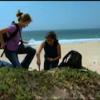
Sand Dunes
Source Institutions
This outdoor activity (on page 2 of the PDF under SciGirls Activity: Sand Dunes) is a full inquiry investigation into how the amount of moisture in a sand dune relates to the number of plants growing
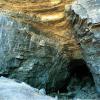
Soda Pop Cave
Source Institutions
In this geology activity (page 6 of the PDF), learners explore how carbonic acid can slowly dissolve limestone and form caves.
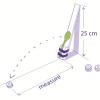
Volcanic Material Catapult Investigation
Source Institutions
This activity (located on page 3 of the PDF under GPS: Lava Flow Activity) is a full inquiry investigation into the relationship between an object’s mass and the distance it is thrown by a catapult.
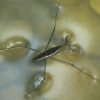
Breaking the Tension: Surface Tension 1
Source Institutions
Learners explore how the attractive forces between water molecules create surface tension and allow certain objects to float on the surface of water.
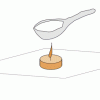
Finding the Carbon in Sugar
Source Institutions
In this activity about combustion and energy, learners observe a burning candle in a sealed jar and the burning of white sugar.

Save Your Skin
Source Institutions
This is a fun activity about the power of the Sun and the importance of using sunscreen to protect your sensitive skin from its rays.

The Effects of Acid Rain
Source Institutions
In this environmental science activity (page 4 of the PDF), learners use vinegar and chalk to observe the effect of acid rain on various building materials and plant life.

Lift Off!
Source Institutions
This activity (on page 2 of the PDF under SciGirls Activity: Lift Off) is a full inquiry investigation into the engineering challenges of sending scientific sensors into space.

Sand Study
Source Institutions
In this geology activity, learners use a microscope to discover and identify the components of sand.

Capturing Carbon Dioxide
Source Institutions
In this activity, learners investigate carbon sequestration by creating a carbonated beverage out of apple juice and dry ice.

Space Jell-O
Source Institutions
Albert Einstein proved that space bends around anything that has mass. This activity uses Jell-O's ability to bend around objects as a model for space bending around planets and stars.
Build A Hydrometer
Source Institutions
In this activity, learners will explore how a hydrometer works by building a working model and conducting experiments.

Oil Spill Solutions
Source Institutions
In this activity, learners explore how environmental engineers might approach solving the problem of an oil spill.
